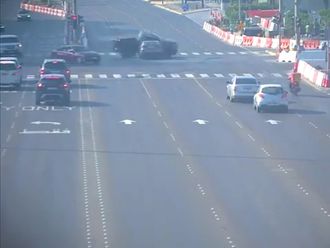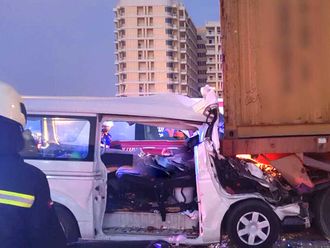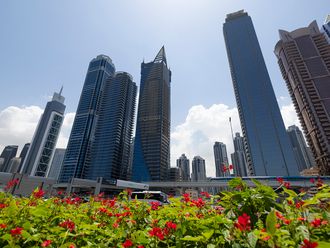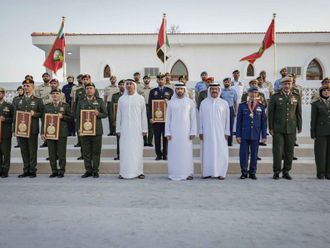Dubai: Yard test or parking test, which is the key part of acquiring a driving licence in Dubai, has been automated to help reduce human errors, the Roads and Transport Authority (RTA) announced on Tuesday.
Gulf News reported about the project in April when the automation process was in the trial phase.
According to the RTA, the project called Smart Yard has now been rolled out, improving the accuracy of the results. The announcement was made as part of RTA’s Innovation Week initiatives.
Yard tests are conducted to test the basic skills of trainee drivers before they are taken out on road for the final stage of training. The test has five components: parallel parking, roadside parking (60-degree inclination), garage parking, slope (hill), and sudden braking.
As part of the project, the Yard is fitted with sophisticated technological devices like surveillance cameras and sensors as well as a testing vehicle.
“Innovation has become a standard practice at the RTA and the Smart Yard is part of this innovative trend,” said Ahmad Behroozian, CEO of RTA’s Licensing Agency.
The automation process has the Test Yard fitted with five surveillance cameras, four of them outside the vehicle to guide the candidate to the locations of the five manoeuvres. The fifth camera is fitted on-board the test vehicle to verify the identity of the driver during the test.
“The vehicle is equipped with more than 20 sensors to help the trainee avoid collision in case of approaching any obstacle. The yard is fitted with sensors that automatically transmit images of the test once the vehicle passes through them to a processor that spots mistakes made by the driver,” said Behroozian
He said that the captured images are transmitted to an interactive screen in a control tower installed in the testing yard where a staff member retrieves the results and use them in the assessment of the candidate.
“The smart automated system will ensure that there will be no human intervention during the test. This will ensure reduction of mistakes in judgement, which can happen by examiners. When human intervention is involved, the chances of error in judgement are higher, so use of technology will minimise the margin of error,” said Behroozian.
Similar systems are already being used in some countries including South Korea, from where the technology was procured and piloted at Dubai Driving Centre (DDC).
A trainee driver in Dubai undergoes three types of tests — theoretical knowledge test, yard test, and road test — before acquiring a driving licence.
“Among the advantages of the smart testing yard is that the examiner can monitor more than one candidate at a time, which translates into reducing the number of examiners by as much as 35 per cent from the current levels,” said Behroozian.
The system will also allow handling of more applicants and accordingly reducing the waiting lists.
Behroozian also hoped that the use of technology will help reduce the number of complaints received from applicants.












